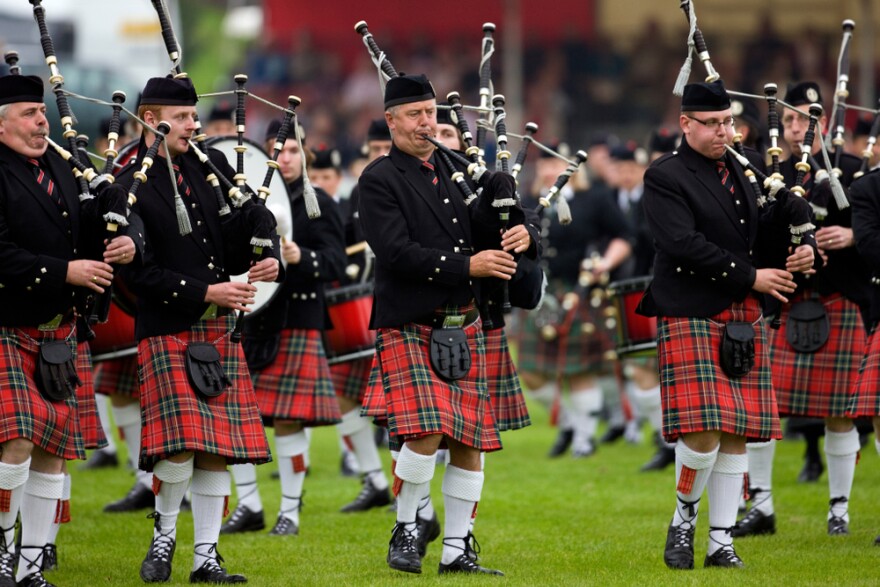What do AC/DC, the Broadway musical Brigadoon, Paul McCartney and Classical Sprouts have in common?
The bagpipes!
Most of us probably associate the bagpipes with Scotland, but they’re actually from the Middle East.
Historians think they arrived in what we now call Great Britain with Roman invaders who conquered the area around 43 A.D.
We talked to Peter Deneen, the Pipe Major with Grand Traverse Pipes and Drums from Traverse City, Michigan, to find out more about the bagpipes and how they work!

The name "bagpipes" actually tells us a lot about this complicated instrument.
The bagpipes have five pipes; the player blows into one to make reeds - like you'd see on a clarinet or saxophone - in the instrument vibrate.
This sends sound through the other four pipes.
The bag acts almost like a third lung, supplying air when the player needs to take a breath.
Playing the bagpipes is a delicate balance; players have to have the perfect amount of pressure on the bag to stay in tune!
The bagpipes also have a chanter, which looks almost like a recorder and allows the player to play different notes.
You might have noticed that bagpipe music tends to have a lot of ornamentation.
The bagpipes can only play nine different notes, so the players often make melodies more interesting with grace notes.
They add these fast ornamentations by wiggling their fingers quickly over the chanter's holes.
Listen to more bagpipe music and find out more about Peter below!
Be sure to subscribe and follow @classicalsprouts on Instagram to join our inclusive community.
Help Sprouts grow! Support IPR for more classical music fun, just tell us in the comments that your donation is for Classical Sprouts.
Classical Sprouts is produced by Emily Duncan Wilson. Stefan Wiebe was this episode's recording engineer. Kacie Brown is the digital content manager.





